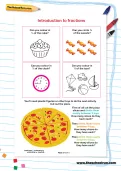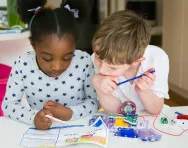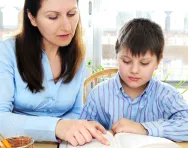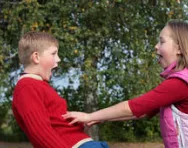Important update from TheSchoolRun
For the past 13 years, TheSchoolRun has been run by a small team of mums working from home, dedicated to providing quality educational resources to primary school parents. Unfortunately, rising supplier costs and falling revenue have made it impossible for us to continue operating, and we’ve had to make the difficult decision to close. The good news: We’ve arranged for another educational provider to take over many of our resources. These will be hosted on a new portal, where the content will be updated and expanded to support your child’s learning.
What this means for subscribers:
- Your subscription is still active, and for now, you can keep using the website as normal — just log in with your usual details to access all our articles and resources*.
- In a few months, all resources will move to the new portal. You’ll continue to have access there until your subscription ends. We’ll send you full details nearer the time.
- As a thank you for your support, we’ll also be sending you 16 primary school eBooks (worth £108.84) to download and keep.
A few changes to be aware of:
- The Learning Journey weekly email has ended, but your child’s plan will still be updated on your dashboard each Monday. Just log in to see the recommended worksheets.
- The 11+ weekly emails have now ended. We sent you all the remaining emails in the series at the end of March — please check your inbox (and spam folder) if you haven’t seen them. You can also follow the full programme here: 11+ Learning Journey.
If you have any questions, please contact us at [email protected]. Thank you for being part of our journey it’s been a privilege to support your family’s learning.
*If you need to reset your password, it will still work as usual. Please check your spam folder if the reset email doesn’t appear in your inbox.
How your Year 2 child develops

As far as your Year 2 child is concerned, the world revolves around them, and they’re likely to want to be the centre of attention at all times. And with KS1 SATs on the horizon, this can be a tricky year. “In your child’s mind, success is measured by who is the best at reading or maths, which can cause upset if they’re not at the top of their class,” says chartered educational psychologist Julia Busch Hansen.
What’s going on in there?
This is the age of ‘me, me, me’. Your child wants to be the best at everything, and will change the rules of a game so they come out on top. Because of this, friendships may be volatile. Your child wants choices but struggles to make them, wanting everything all at the same time. And they’re constantly busy, which can make everyday activities like sitting down for a meal challenging.
By now, most children are becoming increasingly fluent in reading and writing, and this is likely to be the age from which your child starts to have continuous memories as an adult. They’re probably also grasping skills like telling the time.


Start the Year 2 Learning Programme!
- Weekly maths & English worksheets direct to your inbox
- Follows the National Curriculum
- Keeps your child's learning on track
Your six- to seven-year-old is developing a strong sense of gender identity. In general, boys now prefer to play with boys, and girls with girls. They may be pushing you away as a parent, for example refusing to kiss you in public, and simultaneously developing a strong attachment to another adult, such as a teacher or play leader.
Your child’s sense of humour is blossoming, but they don’t always understand when jokes are appropriate. “They may need your guidance on when and how to use humour, as no one likes to be the butt of someone else’s joke,” says Julia. Your child may also be thinking about death and beginning to understand its finality.
Potential pressure points
Although most schools try hard to keep the pressure off, KS1 SATs can be a cause for concern for children in Year 2. Your child may be challenged by:
- perceiving themselves as inferior to other children, especially if they’re not particularly academic.
- power struggles within groups of friends, including telling tales.
- having to concentrate harder in class and follow more complex instructions.
- doing more homework, including learning spellings and times tables.
- having to share the teacher’s attention, especially if they’re strongly attached to him or her.
- accepting that they can’t be first and best at everything.
Warning signs to watch out for
Whether your child is stressed out about SATs or struggling with friendship issues, it’s important to recognise the signs that they’re feeling the pressure. These could include:
- Stuttering.
- Difficulty concentrating in class.
- Distracting other children from their work by clowning around, whispering and so on.
- Being unkind to friends.
- Crying easily.
- Having a defeatist attitude towards schoolwork or other activities.
“At this stage, it’s very important to work closely with other adults who care for or teach your child,” advises chartered educational psychologist and educational adviser Susan Brooks. “Early intervention where there are difficulties with literacy, numeracy or social issues is usually extremely successful.”








